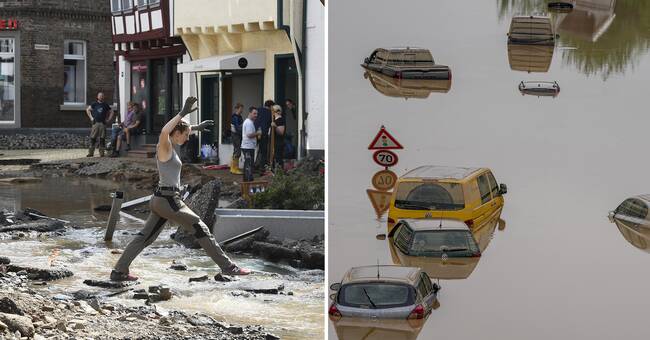Between 12 and 15 July, the huge bodies of water swept forward and washed away houses and roads.
At least 190 people died in western Germany and nearly 40 lost their lives in Belgium.
In the Netherlands, thousands of people were forced to flee their homes.
By analyzing rainfall over Western Europe, researchers from several European countries as well as the United States have tried to assess the extent to which climate change has changed the probability of such heavy rainfall.
- We will definitely get more of this with a warmer climate, says one of the leaders of the research group, climate researcher Friederike Otto at the University of Oxford, to Reuters.
Heavy rain
In the study, published by the World Weather Attribution (WWA), the 39 researchers analyzed weather data and simulations across France, Germany, Belgium, the Netherlands, Luxembourg and Switzerland to compare today's climate - which is around 1.2 degrees warmer, to large partly due to human pollution - with how the weather was before industrialism.
Because warmer air can absorb more moisture, the summer rains in the affected region are now 3–19 percent heavier than they would have been without global warming, according to the researchers.
- The increased risk that we have shown in the study is something we must work with via flood management, to be prepared and have early warning systems, says Maarten Van Aalst, head of the Red Cross Climate Center, reports AFP.
In line with the IPCC
The probability of such extreme weather leading to the devastating floods in Germany and Belgium is estimated to have "increased by a factor of between 1.2 and 9" according to the study.
The reason why the range in the forecast is so large is partly due to shortcomings in historical weather reports.
In addition, equipment that monitors the water level in the floods was destroyed.
-The study confirms that global warming has played a major role in the flood disaster, says Stefan Rahmstorf, who is an oceanographer at the Potsdam Institute for Climate Research (PIK) in Berlin.
- This is in line with the latest IPCC report, he adds.

